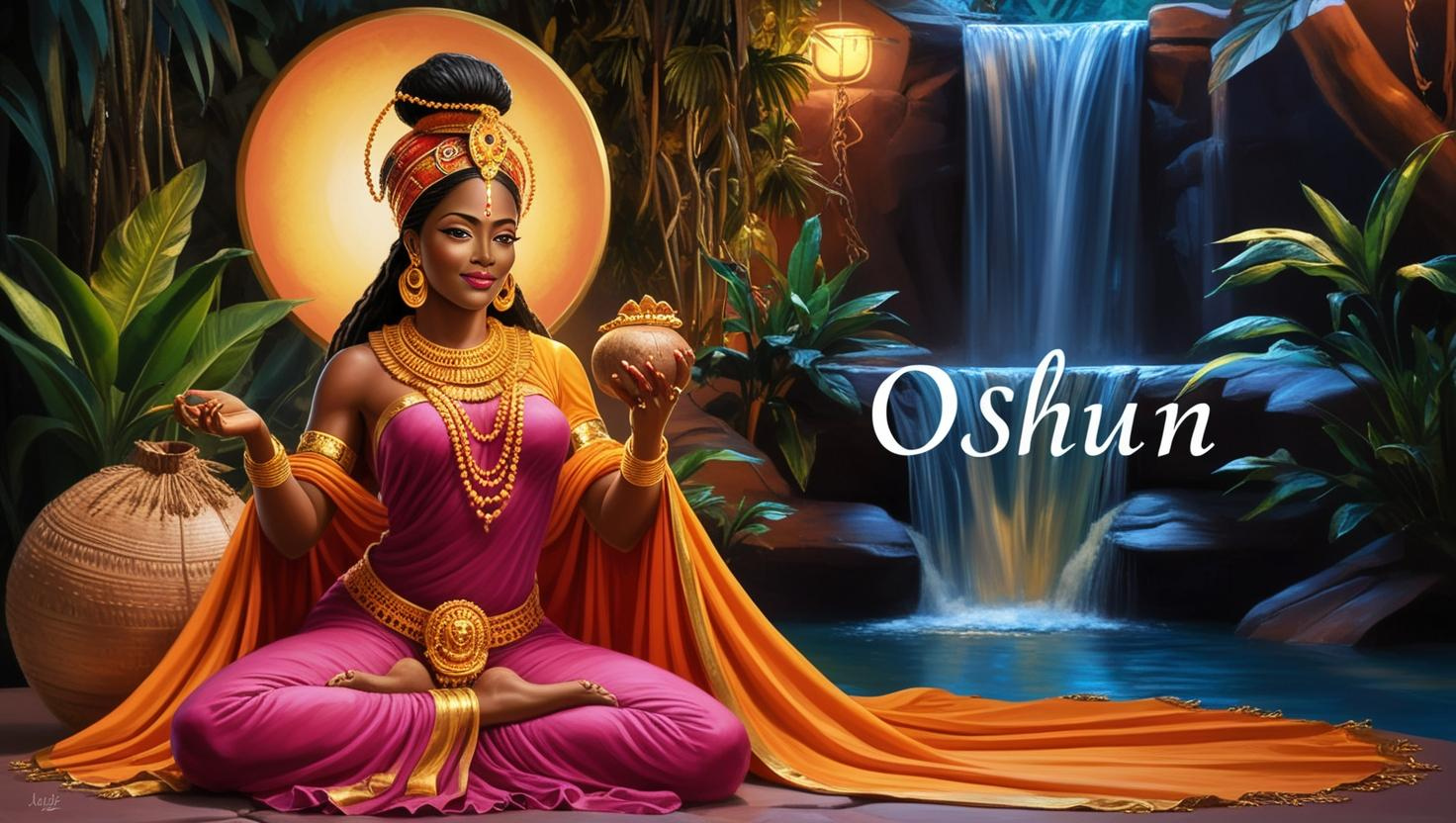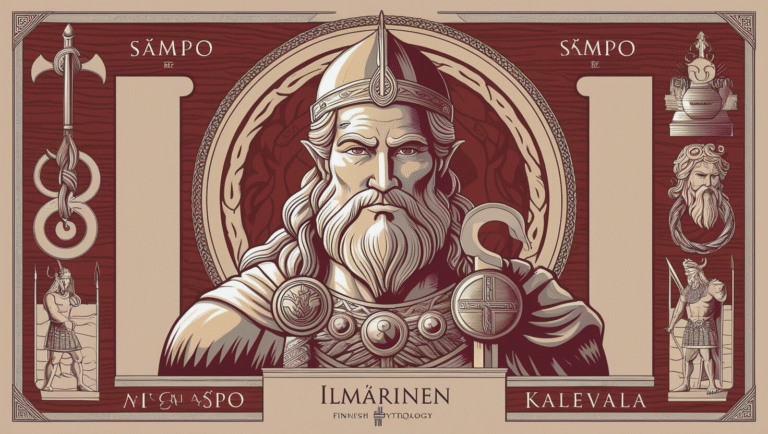“I am the river that remembers. I am the sweetness that restores.”
Oshun (also spelled Osun, Ochún, Oxum) is a major orisha (deity) from the Yoruba religion, associated with rivers, love, fertility, beauty, and wealth.
Originates from the Yoruba people of Nigeria; venerated across the African diaspora in traditions like Santería (Cuba), Candomblé (Brazil), and Vodou (Haiti).
Represents feminine power, emotional healing, diplomacy, sensuality, and abundance.
Closely linked to freshwater, especially rivers, with the Osun River in Nigeria being sacred to her.
Often depicted as a radiant, graceful woman in gold or yellow garments, carrying a mirror, fan, and surrounded by peacocks or freshwater fish.
Her primary number is 5; offerings often come in multiples of 5.
Favorite offerings include honey (which must be tasted first), cinnamon, oranges, pumpkins, jewelry, and river water.
Associated colours are yellow, gold, and amber; these are common in her altars and ritual attire.
Symbolizes both sweetness and severity—kind and loving when honoured, vengeful if disrespected.
Plays a crucial role in Yoruba creation myths; when male orisha failed to create the world, Oshun restored balance through love and water.
Highly revered in annual festivals like the Osun-Osogbo Festival in Nigeria, a UNESCO-recognized celebration of her and the sacred grove.
In Santería, she is syncretized with Our Lady of Charity (La Caridad del Cobre), the patroness of Cuba.
In Candomblé (Brazil), Oxum is the orisha of beauty, wealth, and maternity, often worshipped by women seeking fertility.
In Haitian Vodou, her closest parallel is Erzulie Freda, goddess of love and luxury.
Often connected romantically to Shango, the orisha of thunder and lightning, and seen as his consort or lover.
Shares complementary energies with Yemaya (orisha of the ocean) and sometimes conflicts or alliances with Oya (orisha of storms and transformation).
Worship practices include dance, drumming, singing, offerings at rivers, and spirit possession during ceremonies.
Common taboos include neglecting her rituals, ignoring feminine energies, or offering untasted honey—linked to myths of her betrayal.
Continues to influence global spirituality, feminism, and Black identity movements, often honored as a symbol of feminine power and resistance.



